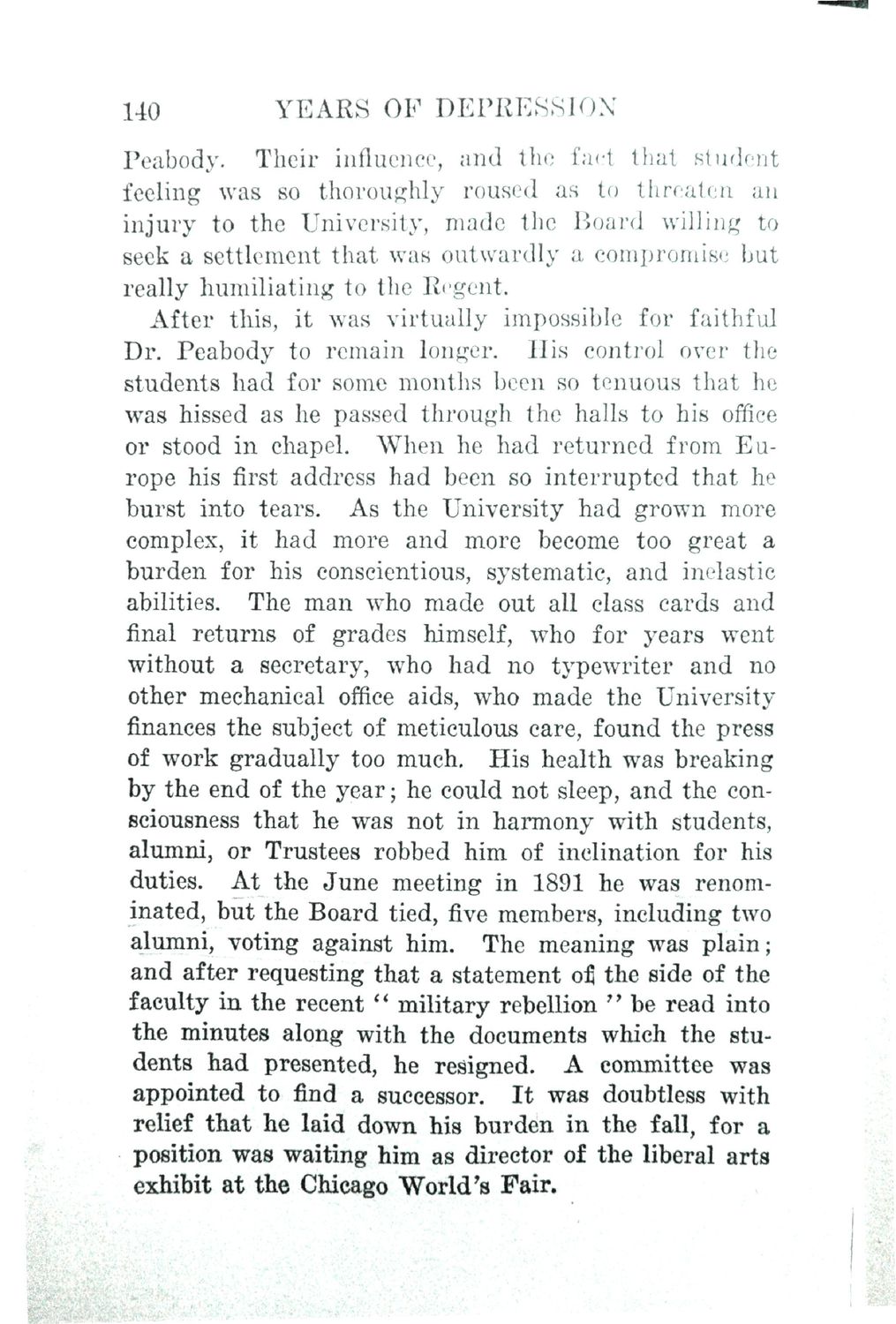| |
| |
Caption: Book - History of the University (Nevins)
This is a reduced-resolution page image for fast online browsing.

EXTRACTED TEXT FROM PAGE:
140 YEARS OF DEPRESSION Peabody. Their influence, and the fact that student feeling was so thoroughly roused as to threaten an injury to the University, made the Board willing to seek a settlement that was outwardly a compromise but really humiliating to the Regent. After this, it was virtually impossible for faithful Dr. Peabody to remain longer. His control over the students had for some months been so tenuous that he was hissed as he passed through the halls to his office or stood in chapel. When he had returned from Europe his first address had been so interrupted that he burst into tears. As the University had grown more complex, it had more and more become too great a burden for his conscientious, systematic, and inelastic abilities.;^-The man who made out all class cards and final returns of grades himself, who for years went without a secretary, who had no typewriter and no other mechanical office aids, who made the University finances the subject of meticulous care, found the press of work gradually too much. His health was breaking by the end of the year; he could not sleep, and the consciousness that he was not in harmony with students, alumni, or Trustees robbed him of inclination for his duties. At the June meeting in 1891 he was renominated, but the Board tied, five members, including two alumni, voting against him. The meaning was plain; and after requesting that a statement oij the side of the faculty in the recent " military rebellion § be read into the minutes along with the documents which the students had presented, he resigned. A committee was appointed to find a successor. It was doubtless with relief that he laid down his burden in the fall, for a position was waiting him as director of the liberal arts exhibit at the Chicago World's Fair.
| |